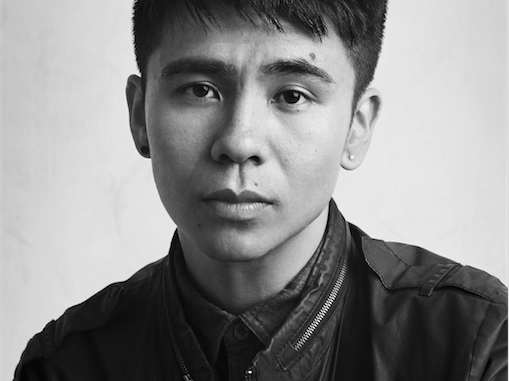
Critically acclaimed and award winning poet Ocean Vuong visited SUNY New Paltz to read poetry selections from his book, “Night Sky with Exit Wounds.”
“Night Sky with Exit Wounds” was a New York Times top 10 book of 2016 and was a part of Library Journal’s 2016 Best Books of the Year.
It was also awarded the Whiting Award in 2016, along with the Forward Prize. The book has also been recognized as a best book of the year by publications such as The New Yorker, The Boston Globe, The San Francisco Chronicle, NPR, and The Huffington Post.
Professor Pauline Uchmanowicz took the podium, thanking the College, sponsors and the creative writing program for organizing and hosting Vuong. An anthropology professor talked of the significance of Vuong in the context of Vietnamese art and work. She reflected on specific elements of his poetry and how it discusses, “growing up in a place that is and is not one’s own.”
Lecture Center 100 buzzed in anticipation as Vuong took the podium on Nov. 9.
With a gentle, soft voice, he opened the reading with a thank you to the creative writing program, to Professor Larry Carr, and the university. “I thank you for your presence,” Vuong said, “I feel very lucky to be here, reading you these little poems.”
His first poem was one he wrote in 2016. He explained that the turmoil of the year, the chaos yielded only one poem. He read it and the crowd fell to a hush.
Vuong followed this poem– long, winding and mesmerizing– with a second, called “Telemachus.” “A lot of the book attempts to navigate the idea of the mythological,” Vuong said The poem’s name alludes to Telemachus, the son of Homer’s famed Odysseus.
The poem is mid-length and concise, ending with the speaker viewing his father’s drowned face, “The face not mine but one I will wear / to kiss all my lovers goodnight: / the way I seal my father’s lips with my own / and begin the faithful work of drowning.”
The next poem was preceded with a quote by Emily Dickinson, “The stars are not hereditary.” Vuong then discussed his process in creating the poem; he wanted to write a two-part poem to his father and to his future son. After writing the poem to his father, though, he realized that it was applicable to him and his unborn son. The final lines refer to the title of the book. Vuong said of the stars, “they were: the exit-wounds / of every / misfired word.”
Vuong mentioned safe spaces, and said that his safe space is one where he is “actively participating in joy.” He then introduced his next piece, “Ode to Masturbation.” The audience laughed, and he read.
The final poem was entitled “Notebook Fragments.” Before reading the first lines, he said the “journal [can be used] as a form of survival.” “I think that form is as worthy of art and poetry.” The poem was long, but jarring. The audience was riveted. The final line rang through the lecture hall, concluding the poem’s cacophony of images: “Here / That’s all I wanted to be / I promise.”
The Q&A portion of the night then began. Vuong was slow to answer, articulate, and exuded profundity with each answer. He referred to the nature of writers, “[They are] archives of stories. Writers are like little moving libraries.” A significant answer pertained to community.
“Community is portable, language leads back to life,” Vuong said. “People can take everything from you except your story.”
The Q&A concluded with massive applause, and people queued to get their books signed by the poet.
“I didn’t really know much about him- but he seemed very intriguing,” said Jazmine Espeut, ‘21. “In passing I heard that his poems were unconventional.
“I also really liked the ending, the more poems he read the more familiar I became with his structure. Certain lines grabbed you.”
